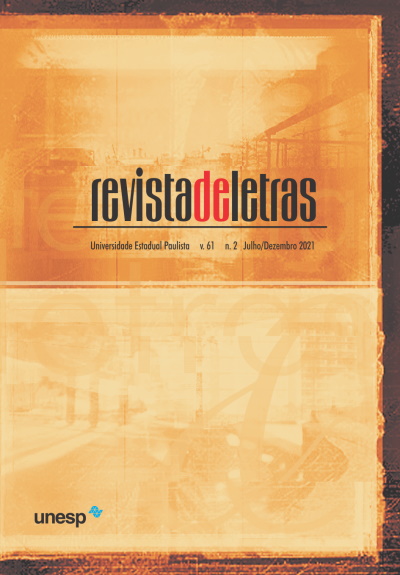Analysis of the sonnet “The Fragility of Human Life” and spectres in Sixteenth Century Portuguese Poetry
Keywords:
The Phoenix Reborn, Sonnet, 16th century, Antithesis, Existential, FragilityAbstract
It is ambitious with this analysis to decipher and assimilate details of the sonnet “The fragility of human life”, authored by the poet Francisco de Vasconcelos present in the most relevant Portuguese collection The Phoenix reborn – prepared by Matias Pereira da Silva, published between 1716 and 1728. As stated by the studies conducted by Micaela Ramon, Cidália Dinis and Segismundo Spina, this work briefly characterizes The phoenix reborn as an inventory of language, of the main lyrical and thematic resources common among the poetic productions of the period, absorbing the historical-religious contexto unstable of the seventeenth century, trivially designated as “Baroque”, however it will be rectified according to what engenders Adma Fadul Muhana, Maria do Socorro Fernandes de Carvalho and João Adolfo Hansen. Moreover, to enable the construction of an interpretative and individual perspective on the sonnet, in addition to the structural conceptions based on José de Nicola and Ulisses Infante, the stylistic use of antithesis, paradoxes and hyperrbates punctuated by Afrânio Coutinho and parallel symbols and compared with renowned works such as Os Lusíadas by Luís de Camões and Odyssey by Homero, we seek to integrate the issue of fragile, pessimistic and skeptical human life in the face of the pre-establishment of morals and existential perspectives in accordance with the severe emptiness of the end.
Downloads
Published
Issue
Section
License
Os manuscritos aceitos e publicados são de propriedade da Revista de Letras. Os originais deverão ser acompanhados de documentos de transferência de direitos autorais contendo assinatura dos autores.
É vedada a submissão integral ou parcial do manuscrito a qualquer outro periódico.
A responsabilidade do conteúdo dos artigos é exclusiva dos autores.
É vedada a tradução para outro idioma sem a autorização escrita do Editor ouvida a Comissão Editorial.

